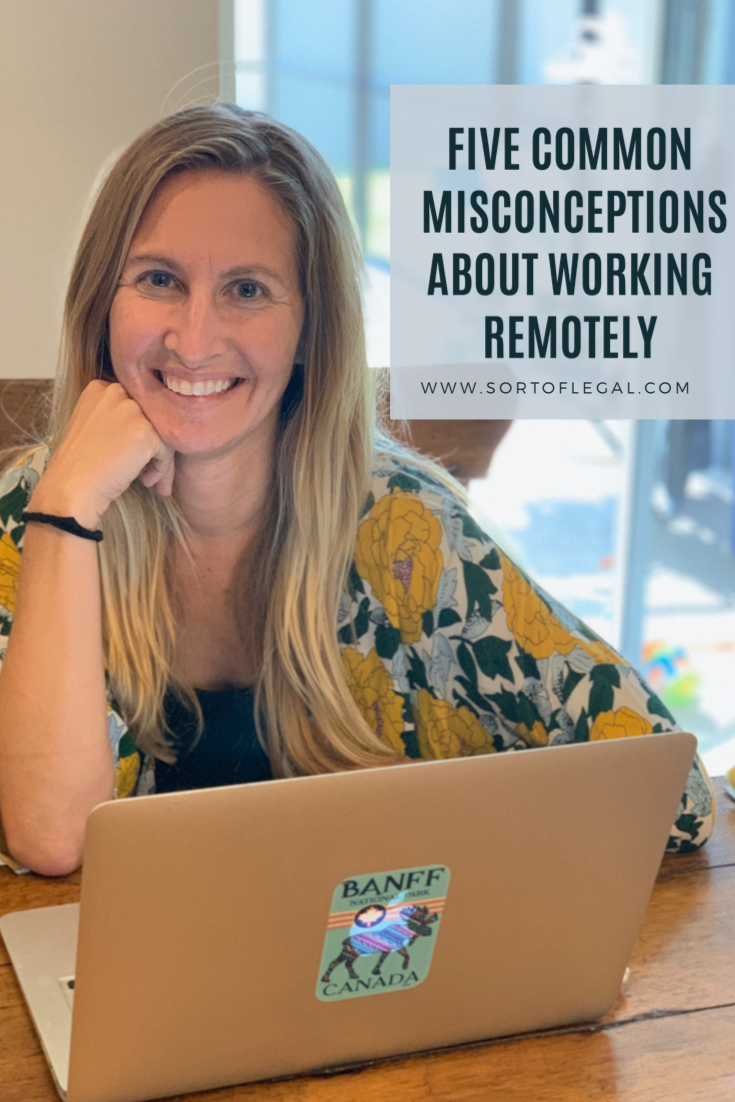
5 Very Common…and Very Wrong Misconceptions About Remote Workers.
For many, the term “remote worker,” conjures up flashbacks of Instagram photos of millennial entrepreneurs sitting poolside in Bali, Indonesia and bragging about working two hours a day.
…and yes, that type of remote workers exists.
…and yes, many of us (myself-included) wouldn’t mind being that type of remote worker.
….but most remote workers are not sipping mehkong while getting a foot massage in Thailand, they’re working hard and dreaming of their next day off.
What is a Remote Worker?
A remote worker is someone who is not required to show up to a particular office or location to perform their work. It is a very broad classification with a lot of subsets like digital nomads, flexible schedule workers, entrepreneurs, and 9-to-5 employees.
Common Misconceptions About Remote Workers
Misconception #1: All Remote Workers Are Digital Nomads.
A digital nomad is a remote worker who can and doeswork from anywhere. They may have a home-base where they maintain a home or apartment, but more often than not, you won’t find them there. Thanks for social media, digital nomads are the most visible sub-group of remote workers, but Remote Workers Are Not all Digital Nomads.
And, not all remote workers want to be digital nomads. In fact, some go remote for the exact opposite reason: to spend more time at home. According to OwlLabs, the top reasons workers choose to go remote are: “better work-life balance (91%), increased productivity/better focus (79%), less stress (78%) and avoiding a commute (78%).”
Misconception #2: Remote Workers Never Go into an Office.
Not all remote workers, work remotely all the time. Many workers work remotely only a few days per week or even month and are on-site the rest of the time.
Even workers who have the option of working outside of the office 100% of the time, sometimes choose to go into the office at least part-time for socialization, to collaborate with coworkers, to use equipment, or other reasons.
Heck, even those workers who have no office because they work for themselves or a company that is fully digital, find a way to go into “the office” by joining co-working spaces.
Misconception #3: All remote workers are digital entrepreneurs.
Just as in the non-remote workforce, some remote workers are entrepreneurs while others are employees of a company. The number of companies permitting workers to work remotely at least part-time has been consistently increasing. As it does, you can expect to see the number of remote employees continue to increase.
Misconception #4: Remote workers work less than on-site workers.
The quickest way to piss of a remote worker is to tell them, “you’re soooo lucky,” implying that they are not actually working much. Most remote workers, including digital nomads, actually work full-time, and many work more hours than those who go into an office.
As a remote worker (currently, a digital nomad) myself with a lot of remote friends, I can tell you, anecdotally that remote workers are working…hard. Additionally, think about this: remote employees still have deadlines and work responsibilities, remote entrepreneurs still have to run a business. If these remote workers weren’t actually working, they wouldn’t have jobs, businesses, or money for long.
The one exception here is the occasional remote worker, who indeed “works” remotely on their monthly work from home day. When you tell this type of remote worker, “you’re so lucky,” they won’t get irritated. Instead, they’ll laugh and tell you about how much laundry they get done on their work from home day and how to game the system to look like you are working more than you are while at home.
Misconception #5: Remote workers are all happy with their jobs.
At least one study has shown that remote workers are generally happier than those that work fully on site, it doesn’t mean they are always happy-.
From experience, I can tell you that working remotely may make your situation better, but if you hate the work you are doing, it won’t make it good or enjoyable, which is why I encourage anyone that wants to become a remote attorney (or worker), to ask themselves these questions before pursuing their remote work dreams.
Read More About Remote Work
Want to delve deeper into understanding remote work and trends? Here are some articles to get your started:
Packsmith: The Myth of the 4-Hour Workweek: Most Digital Nomads Work Full Time
Council Post: Remote Workers Are Not All Digital Nomads
OwlLabs: State of Remote Work
Sheets: Are Remote Workers Actually Working?
Stylist: How to be freelance: this is the reality of living the ‘dream’ Instagram lifestyle

